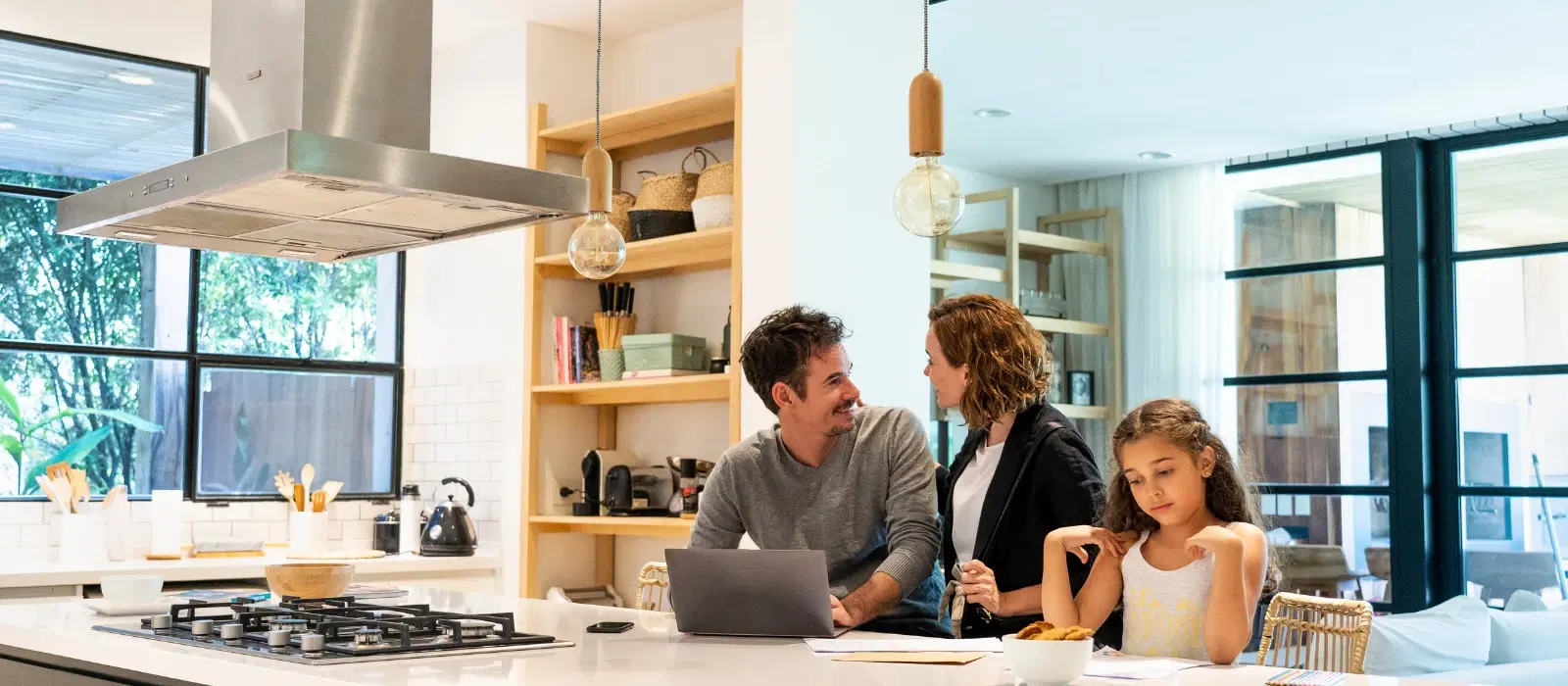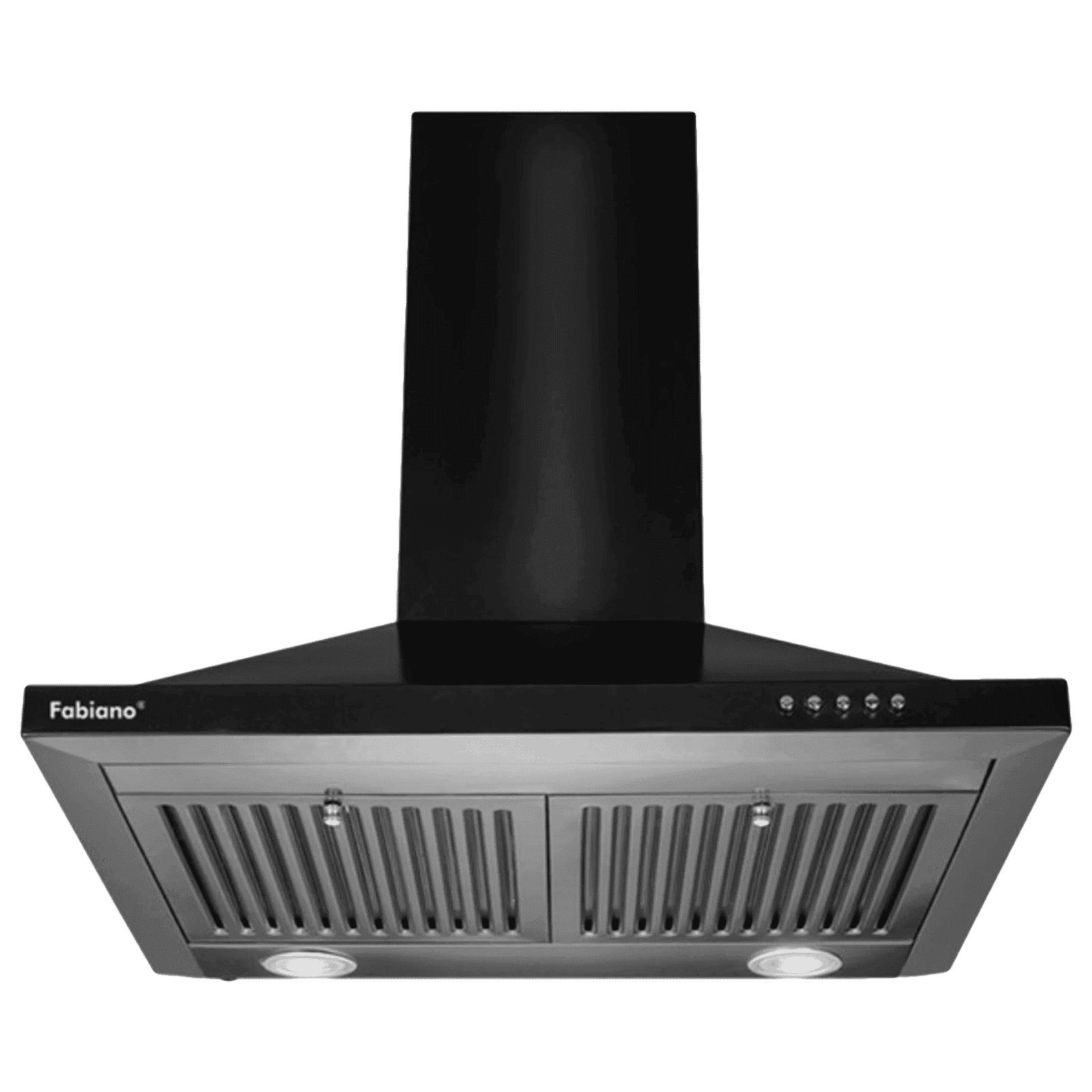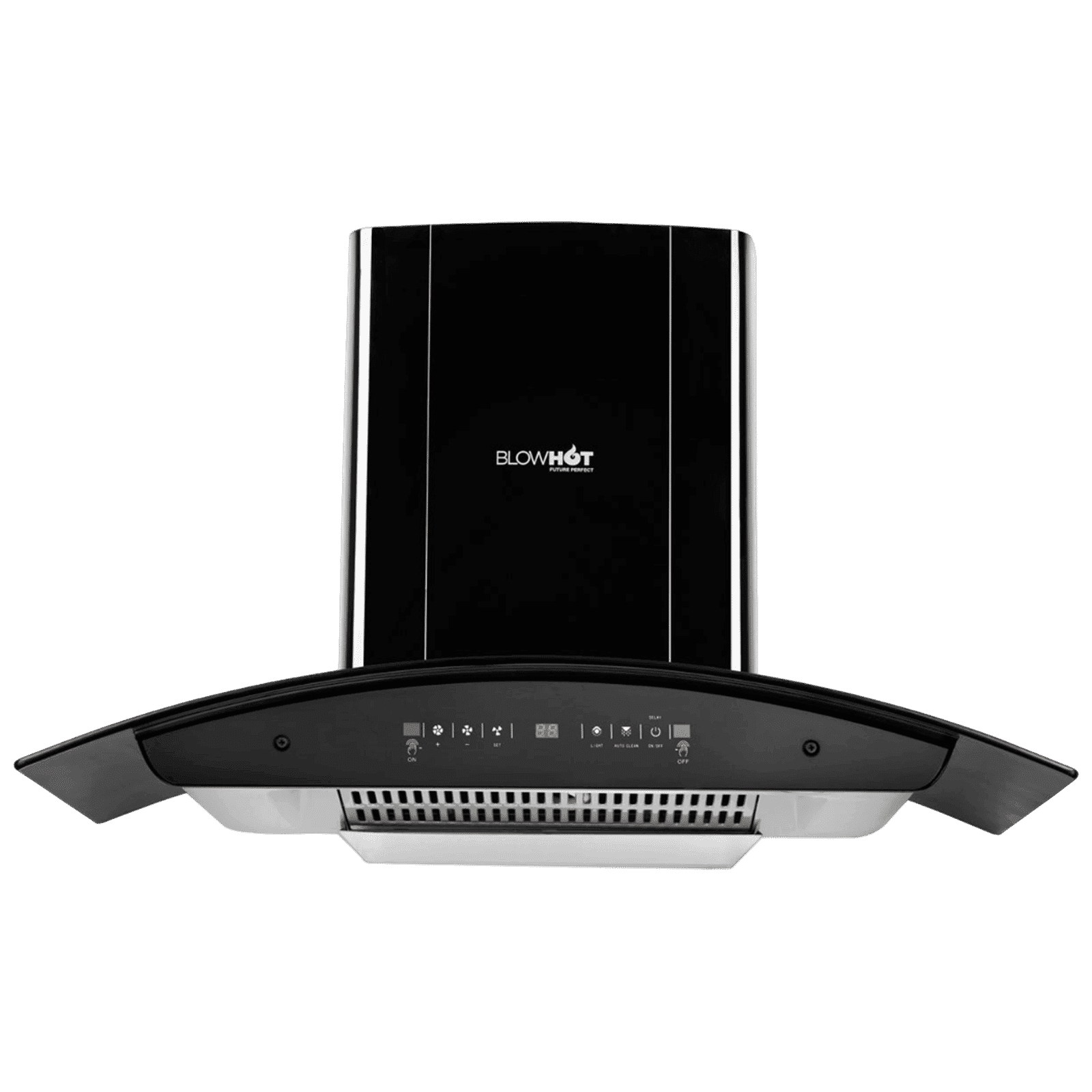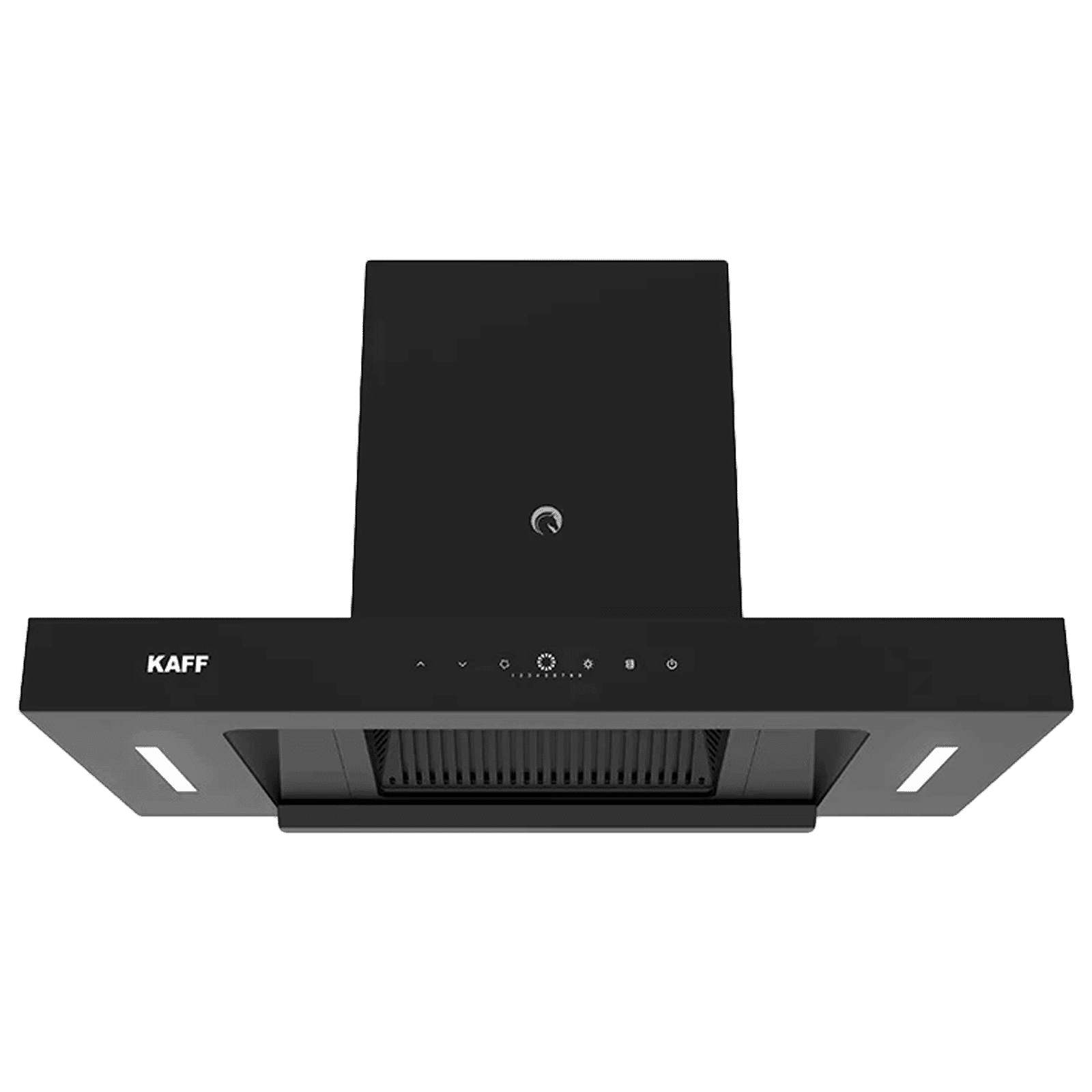
Home Appliances
•04 min read

Buy Fabiano Cosmo 60cm 1000m3/hr Ducted Wall Mounted Chimney with Dual Baffle Filters (Black) online at best prices from Croma. Check product details, reviews & more. Shop now!
Did you know that improper chimney height can lead to inefficient ventilation and even safety hazards in your home? Whether installing a Kitchen Chimney or a traditional fireplace setup, finding the optimal chimney fitting height is crucial. In this post, you'll learn everything you need to know about chimney installation guidelines, chimney placement tips, and clearance requirements for a secure and efficient setup.
The concept of chimney fitting height refers to the vertical distance from a reference point—be it a stove or the roofline—to the top of the chimney. This measurement is vital for ensuring proper ventilation, effective draft, and overall efficiency of smoke evacuation. For kitchen chimneys, the measurement may differ slightly from traditional fireplaces due to differences in appliance design and usage patterns.
Getting the height right is not just a matter of aesthetics but also one of safety and functionality. Incorrect chimney height can lead to issues such as backdrafts or ineffective smoke clearance, potentially compromising both comfort and security in your home.
When assessing your chimney setup, it is important to consider several key factors. First is the standard chimney clearance requirements, which outline the safe distances between the chimney and nearby structures. These guidelines vary based on whether you have a Kitchen Chimney or a traditional setup.
The 3/2/10 rule is another essential guideline to understand. This rule stipulates that the chimney should extend at least 3 feet above the roofline and at least 2 feet higher than any adjacent structure within a 10-foot radius. Such measurements help maintain an optimal draft and ensure efficient smoke evacuation.
Specifically for kitchen chimneys, the ideal chimney fitting height is generally recommended to be 24–30 inches above the stove. This height helps maintain both performance and an appealing kitchen layout, while taking into account factors such as the type of stove used, be it electric or gas.
Accurate measurements are key to achieving the best chimney performance. One effective method involves measuring the roof pitch and carefully determining the placement of your chimney. Simple tools like a level, tape measure, and even a protractor aid in gauging the precise angle of your roof, ensuring that your chimney sits at the correct angle relative to the structure.
Another handy tool is the chimney height calculator, a digital resource designed to simplify the process. By inputting your basic dimensions and applying guidelines like the 3/2/10 rule, these calculators provide an instant evaluation of the optimal chimney height needed for proper ventilation.

Buy BLOWHOT ERICA TAC MS PLUS 90cm 1450m³/hr Ductless Auto Clean Wall Mounted Chimney with Motion Sensor (Black) online at best prices from Croma. Check product details, reviews & more. Shop now!
Lastly, always ensure that your measurements are in line with current chimney installation standards. These standards not only cover clearance distances but also introduce protocols that align with safety and practical installation requirements.
Did You Know? The 3/2/10 Rule Simplifies Chimney Height Calculation
The 3/2/10 rule is a widely accepted guideline for determining chimney height. It ensures that the chimney extends at least 3 feet above the roofline and 2 feet higher than any structure within 10 feet. Adhering to this rule guarantees proper draft and minimises safety risks.
Ensuring a proper draft is central to chimney efficiency. A well-calculated chimney height directly influences the movement of air, consequently affecting the timely evacuation of smoke. Homeowners should also consider the specific needs of kitchen chimneys. For example, the best chimney height for kitchen setups is not only about maintaining functionality but also about harmonising with the overall kitchen design.
It is also important to avoid common mistakes such as misalignment or insufficient clearance. Professional installation is always recommended, especially if the setup involves complex architectural features. This ensures that all installation standards are met, and your home benefits from a safe and efficient chimney system.
Before beginning the installation, thorough pre-planning is key. Assess the available space, confirm all necessary dimensions, and decide on the appropriate type of chimney that fits your home's requirements.
Next, follow these installation guidelines: mark the designated height based on accurate measurements, secure the unit firmly, and ensure that it is aligned properly with your roofline. Small adjustments during installation can have a significant impact on overall performance, ensuring the optimal chimney height is achieved.
Finally, complete your installation with a series of final checks. This includes testing airflow, verifying all clearance requirements are met, and ensuring that the chimney setup complies with the necessary safety standards. Such steps not only enhance the efficiency of your chimney fitting but also provide long-term benefits in terms of safety and functionality.

Buy KAFF CASTO 75 DC 75cm 1480m³/hr Ductless Auto Clean Wall Mounted Chimney with BLDC Motor (Black) online at best prices from Croma. Check product details, reviews & more. Shop now!
For kitchen chimneys, the recommended height is typically 24–30 inches above the stove, while traditional chimneys are installed according to the 3/2/10 rule.
This rule means the chimney should extend at least 3 feet above the roofline and 2 feet higher than any structure within a 10-foot radius, ensuring optimal draft and safety.
The height of the chimney socket depends on the type of appliance, often placed around 6–7 feet above the floor in kitchen setups.
A chimney pipe should be high enough to ensure a proper draft, usually in adherence to the 3/2/10 rule or local building codes.
The best chimney height for kitchens usually falls between 24–30 inches above the stove, based on cooking habits and appliance type.
Ensuring the correct chimney fitting height is essential for safe, efficient, and aesthetically pleasing home installations. By taking into account chimney clearance requirements, utilising the 3/2/10 rule, and applying specific kitchen chimney considerations, you can achieve a balanced and high-performing setup. Remember that practical tools like chimney height calculators and thorough pre-installation planning are your best friends in this process. Enjoy the benefits of a well-installed chimney that guarantees efficient ventilation and meets all safety standards, all while earning NeuCoins rewards every time you shop smartly on our platform. We appreciate you taking the time to learn about chimney installation guidelines and look forward to supporting you in all your home improvement endeavors.